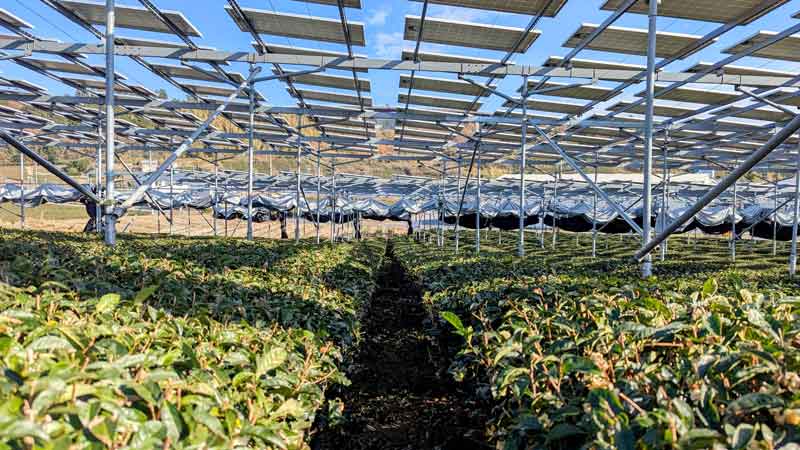

“A company in Vietnam just reserved 6 to 8 tons, and the Middle East too,” said Naomi Komatsu, the company director at Kanes Tea in Shizuoka, Japan while speaking with The Tea Tapes.

I called her after seeing several articles over the week stating that Japan’s matcha is running out (here, here, and here).
“We have so many big orders. You’ve got to make a reservation early in the year if you want to get access,” she said.
According to Komatsu, the Philippines, the UK, and newer countries to the matcha craze, like Saudi Arabia and the UAE, have become obsessed with the delicious green silk.
So, I decided to make some more phone calls and visited a producer in Shizuoka to find out more.

“The high quality, organic matcha, which is more expensive, is less in demand than a medium grade organic matcha,” said Daisuke Mizuno when chatting with The Tea Tapes.
“There’s a shortage of matcha globally but there’s also a shortage in Japan,” he said.
Mizuno is the executive director for AOI Seicha in Nishio, Japan.
He explained that tea houses in Kyoto that primarily serve Japanese customers were also short of matcha and had begun reaching out to companies outside of their own prefecture to procure the product, places like Nishio.
Interestingly, however, the Kanes director, Ms. Komatsu, said that she’d been experiencing the exact opposite.
“It’s actually the higher quality organic matcha that’s in high demand world-wide and causing the shortage," she told The Tea Tapes.

Next, I left for Shizuoka and got lunch with with one of the most innovative tea farmers I've met to see if he had further insight.
"The global shortage of matcha is a wake-up call for all of us in Shizuoka," said Yoshiaki Hattori, owner and president of Hattori Tea Farm in Shizuoka.
Mr. Hattori is obsessed with 3rd wave coffee, so we immediately hit it off.
"For too long, we’ve focused on sencha,” he said, referring to Japan’s most popular green tea cultivated all over the prefecture.
"It's what we know," he stated.
And that’s just what’s he’s done.
Hattori Tea Farm has slowly transformed some of its own sencha fields into tencha, which is used to produce matcha.
But he’s also evangelizing this change to other growers in the area.
“I’ve been telling my fellow farmers that this isn’t just about meeting demand; it’s about securing our future,” he said.

“By using solar panels to shade tencha, we could grow raw material for authentic, high-quality matcha, but also cut electricity costs and make our farms sustainable,” Hattori told The Tea Tapes.
Matcha cultivation undergoes a unique process compared to other teas.
It involves a period of covering the tea plants with bamboo mats, tarps, or straw to force the plants to produce more chlorophyll, slow photosynthesis, and crank up amino acid production — especially L-theanine, the compound responsible for matcha’s signature umami flavor and calming effect.
“I truly believe this is the path forward: if we adapt now, we can mitigate the shortage, keep Shizuoka at the heart of the tea world, and build a system that’s good for both the planet and our livelihoods,” he said.
P.S. The producers above create some of the highest quality matcha in Japan. But they're just a small sample of the people we've been in touch with as a company to produce The Tea Tapes Matcha. Give us a try, you won't be disappointed!